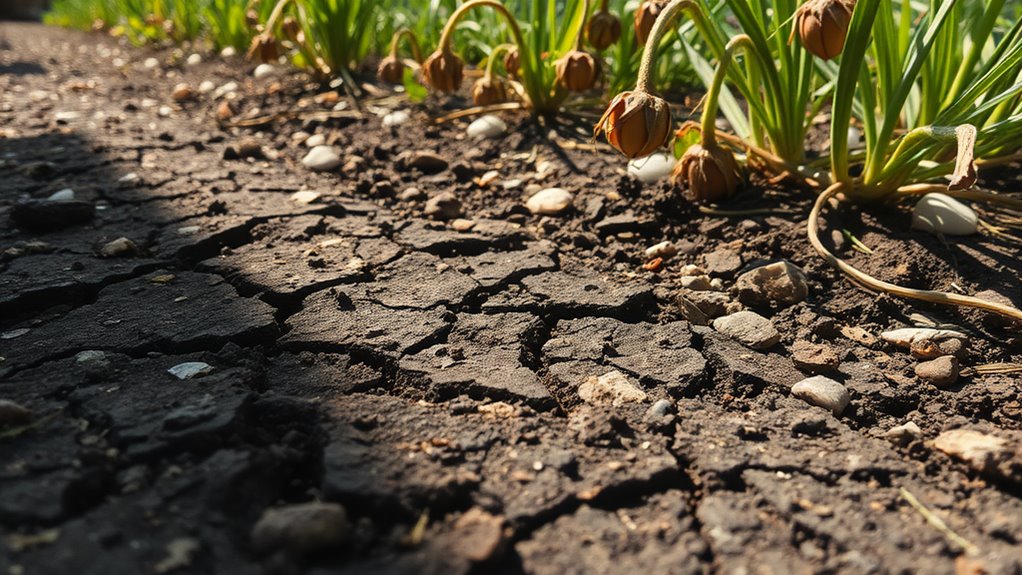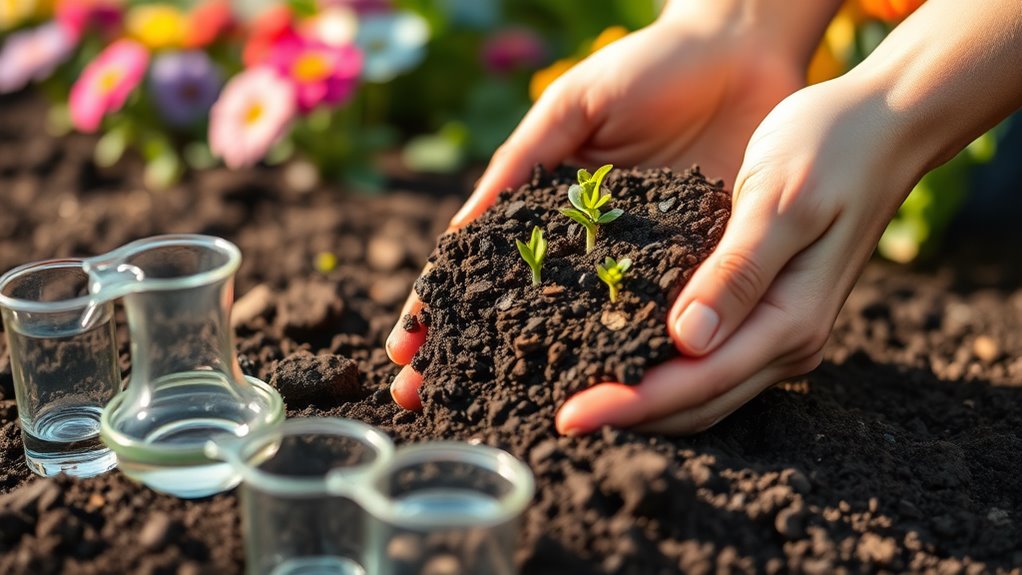Why Your Soil Might Be Sabotaging Your Harvest
Your soil might be sabotaging your harvest due to various factors. Nutrient deficiencies can stunt growth and limit yields. pH imbalances may prevent nutrient absorption, while compaction restricts root development and water flow. Contaminants like heavy metals disrupt microbial activity and stunt plant growth. Additionally, low organic matter reduces nutrient retention and soil structure. Addressing these issues is essential for healthy crops. Discover more about how to optimize your soil for better harvests.
Nutrient Deficiencies and Their Impact
Nutrient deficiencies in soil can dramatically affect your harvest, leading to reduced crop yields and poor plant health.
If you’re facing soil issues, it’s essential to identify which nutrients are lacking.
For instance, nitrogen deficiency causes stunted growth, while phosphorus deficiencies can hinder root development. Potassium shortages may result in weak stems and increased susceptibility to disease.
Addressing these nutrient gaps through soil testing and appropriate fertilization can greatly enhance your crop’s performance. Conducting soil testing allows you to pinpoint specific deficiencies and tailor your fertilization strategy effectively.
Soil Ph Levels: the Hidden Factor
How well do you know the pH levels of your soil?
Understanding soil pH is essential for optimizing nutrient availability and overall plant health.
A pH level below 6 can lead to nutrient lockout, while levels above 7 may cause alkalinity issues.
Most crops thrive in a pH range of 6 to 7.5, but specific plants have unique requirements.
Regular testing is essential, as pH can fluctuate due to rainfall, fertilization, or organic matter decomposition.
Adjusting pH through amendments like lime or sulfur can enhance nutrient uptake, ultimately boosting your harvest. Additionally, soil testing can help identify specific nutrient deficiencies that may be affecting your plants.
Don’t underestimate this hidden factor in your gardening success.
Compaction and Drainage Issues
What happens when soil becomes too compacted? It restricts root growth, limits water infiltration, and impedes air circulation.
Compacted soil creates a dense barrier that prevents roots from accessing essential nutrients and moisture.
You may notice poor plant health and decreased crop yields as a result.
Additionally, inadequate drainage can lead to water pooling, increasing the risk of root rot and other diseases.
To combat these issues, consider methods like aeration or incorporating organic matter. Understanding the importance of accurate soil knowledge can further enhance your gardening success.
Contaminants and Soil Health
Even with improved drainage and aeration, soil health can still be compromised by contaminants.
Heavy metals, pesticides, and industrial pollutants can disrupt microbial activity, hinder nutrient availability, and affect plant growth.
These substances may accumulate over time, leading to toxic conditions that stunt crop development.
Testing your soil for contaminants is essential, as it allows you to identify specific issues and take corrective measures.
Remediation strategies, such as phytoremediation or soil amendments, can help restore balance.
By addressing contamination, you enhance your soil’s overall health, ensuring a more productive and sustainable harvest. Additionally, adopting organic methods can further improve soil quality and ecosystem health.
Don’t overlook this critical factor in your agricultural practices.
Organic Matter: The Key to Fertility
Why is organic matter essential for soil fertility? It enhances nutrient retention, improves soil structure, and supports microbial activity. By incorporating organic matter, you increase the soil’s capacity to hold water and nutrients, which directly benefits plant growth. Additionally, using natural techniques to enhance your soil can lead to healthier plants and a more productive harvest.
| Aspect | Benefit | Impact on Crops |
|---|---|---|
| Nutrient Retention | Holds essential nutrients | Promotes healthy growth |
| Soil Structure | Improves aeration and drainage | Reduces root diseases |
| Microbial Activity | Encourages beneficial organisms | Enhances nutrient cycling |
Investing in organic matter is crucial for sustainable agricultural practices.





